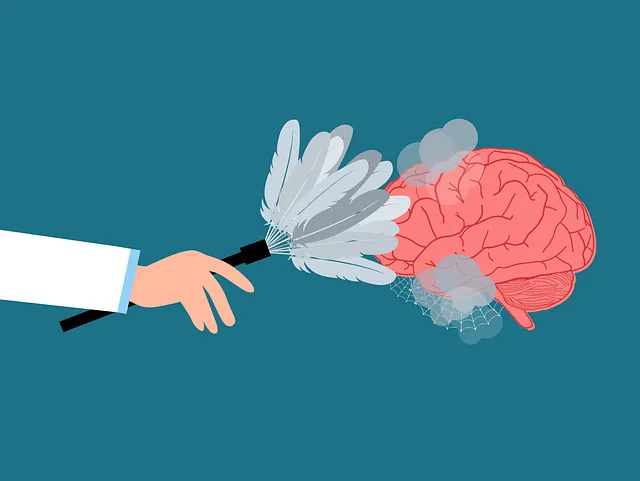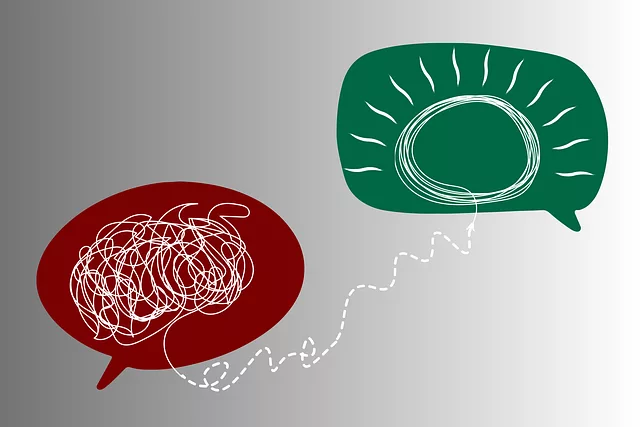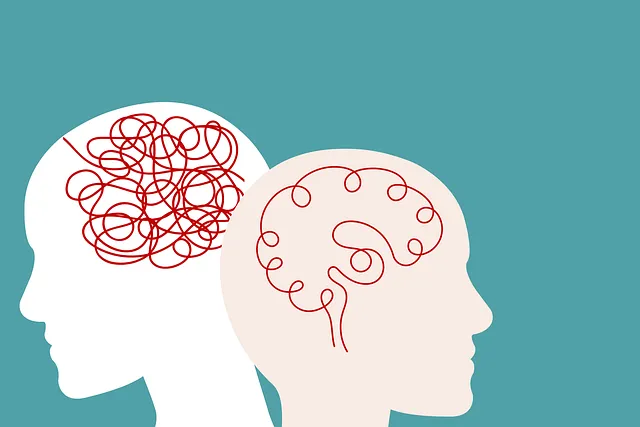The Denver Kaiser Mental Health Programs prioritize cultural sensitivity as a key component of high-quality care, recognizing that diverse backgrounds influence perspectives on health and mental distress. They overcome challenges like insufficient training and language barriers through staff diversity, translation services, and initiatives such as the Mental Wellness Podcast Series and journaling exercises. Their comprehensive strategies, including community outreach and adaptive therapy techniques, set a benchmark for culturally responsive mental healthcare, improving patient outcomes and fostering trust.
Mental healthcare practices must embrace cultural sensitivity to address the diverse needs of a globalized society. This article explores the critical aspect of cultural diversity within mental health services, highlighting challenges and barriers that hinder effective treatment. We present the Denver Kaiser Mental Health Programs as a successful model for cultural competency, offering strategies to integrate sensitivity into therapy sessions. By understanding cultural nuances, therapists can provide more personalized care, improving patient outcomes and fostering inclusive healthcare environments.
- Understanding Cultural Diversity in Mental Healthcare
- Challenges and Barriers to Culturally Sensitive Practice
- Denver Kaiser Mental Health Programs: A Model for Cultural Competency
- Strategies for Integrating Cultural Sensitivity in Therapy Sessions
Understanding Cultural Diversity in Mental Healthcare

In the diverse landscape of mental healthcare, understanding cultural diversity is paramount to delivering effective and compassionate services. The Denver Kaiser mental health programs recognize that individuals from various ethnic, racial, cultural, and socioeconomic backgrounds may have unique perspectives on health, wellness, and the expression of mental distress. This cultural sensitivity involves recognizing and respecting these differences in symptoms, communication styles, and treatment preferences. For instance, what constitutes stress in one culture might differ significantly from another, influencing how individuals seek help for related issues. By embracing this diversity, healthcare providers can create more inclusive environments that foster trust and encourage open dialogue.
The integration of cultural sensitivity goes beyond awareness; it requires the implementation of evidence-based practices tailored to diverse populations. This includes exploring various stress reduction methods, such as mindfulness techniques or traditional healing arts, which might resonate more deeply with certain cultural groups. Additionally, burnout prevention strategies for healthcare providers should account for these nuances to ensure professionals can effectively support both their patients and themselves in a culturally responsive manner. Even simple tools like Mental Wellness Journaling Exercise Guidance can be adapted to accommodate diverse needs, encouraging self-reflection and personal growth within the context of one’s cultural framework.
Challenges and Barriers to Culturally Sensitive Practice

In the pursuit of culturally sensitive mental healthcare, practitioners often encounter various challenges and barriers that demand attention. One significant hurdle is the lack of cultural competency training in many academic programs, including those at renowned institutions like Denver Kaiser Mental Health Programs. This gap can lead to misunderstandings and miscommunications between therapists and clients from diverse backgrounds, hindering effective treatment. For instance, cultural norms regarding expression of emotion, family dynamics, and coping mechanisms vary widely, and without proper understanding, these differences may be misinterpreted as resistance or non-compliance.
Furthermore, language barriers pose a considerable challenge, especially in communities with limited access to bilingual professionals. Effective communication is the cornerstone of successful therapy, and when this is compromised due to language disparities, it can significantly impact treatment outcomes. To overcome these obstacles, mental health programs must prioritize cultural competency training, promote diversity among staff, and offer specialized services like translation and interpretation. Additionally, initiatives such as the Mental Wellness Podcast Series Production and Mental Wellness Journaling Exercise Guidance can foster a deeper understanding of diverse cultures, while focusing on Self-Esteem Improvement can empower individuals from all backgrounds to navigate therapy with enhanced confidence and self-awareness.
Denver Kaiser Mental Health Programs: A Model for Cultural Competency

The Denver Kaiser Mental Health Programs stand as a beacon of excellence in promoting cultural sensitivity within mental healthcare practice. This pioneering initiative has developed comprehensive strategies to address the unique challenges faced by diverse communities, ensuring that mental health services are accessible and tailored to individual needs. By integrating cultural competency into their core operations, Denver Kaiser has set a benchmark for other healthcare providers.
Their success lies in a multi-faceted approach that includes extensive training for staff on cultural awareness, language accessibility, and community engagement. The program’s focus on building bridges between healthcare providers and diverse communities has led to improved patient outcomes and enhanced mental health awareness. Through their Community Outreach Program Implementation, Denver Kaiser actively reaches out to various populations, fostering trust and providing much-needed support, thereby showcasing the power of cultural sensitivity in transforming mental healthcare delivery.
Strategies for Integrating Cultural Sensitivity in Therapy Sessions

Integrating cultural sensitivity into therapy sessions is a multifaceted approach that requires therapists to be proactive and adaptive. One effective strategy is to encourage open dialogue where clients feel comfortable sharing their cultural backgrounds, beliefs, and practices. This not only helps therapists gain valuable insights but also allows clients to feel heard and respected. Additionally, therapists can incorporate culturally relevant materials, such as literature, art, or music, into sessions to create a more inclusive environment.
At the Denver Kaiser Mental Health Programs, we emphasize the importance of cultural sensitivity in our programs’ development and delivery. Through ongoing training and education, our practitioners learn to adapt their therapeutic techniques to meet the unique needs of diverse clients. We also promote public awareness campaigns that highlight the significance of cultural competency in mental healthcare. By integrating these strategies, we ensure that our crisis intervention guidance is not only effective but also aligned with the positive thinking and holistic well-being of all individuals we serve.
Cultural sensitivity in mental healthcare is no longer a choice, but an essential practice for providing effective treatment. As recognized by the Denver Kaiser Mental Health Programs, a model for cultural competency, integrating diverse perspectives into therapy sessions enhances patient outcomes and builds trust. Overcoming challenges and barriers requires therapists to embrace cultural diversity, adapt their practices, and employ strategies that respect individual beliefs and backgrounds. By doing so, we can create inclusive environments that foster healing and support individuals from all walks of life.






